Niger
Niger, in the long form of the Republic of Niger, is a steppe country in West Africa, located between Algeria to the north-northwest, Libya to the northeast, Chad to the east, Nigeria to the south, Benin to the south-southwest, Burkina Faso and Mali to the west-southwest. The capital is Niamey. The inhabitants are Nigerians. The country is multi-ethnic and constitutes a land of contact between sub-Saharan Africa and North Africa. Niger is part of the Economic Community of West African States (ECOWAS) and the Organization of Islamic Cooperation. The most important natural resources of Niger are gold, iron, coal, uranium and petroleum.
Niger’s history
Human occupation of the region dates back to at least the 8th millennium BC. AD (ceramics from the Aïr massif); a cemetery from the 3rd millennium BC. AD was discovered in 2005 in the Ténéré Desert. In the 1st millennium BC. AD, the Berbers would have entered by one of the trans-Saharan roads, driving back to the south the sedentary populations or mixing with them. In the 7th century the Songhai Empire was formed. The capital of the Empire is, from the tenth century, Gao. The region became Muslim at the start of the 11th century, when the kings of Moukia converted to Islam. In 1591, the Empire was defeated by the Saadians. Between the seventeenth and nineteenth centuries, the Tuaregs and the Peuls controlled part of the country and, well before this date, the Hausa dominated its southern part. The area was conquered by the French in 1890, the Franco-English border (Say-Barroua line), was carried further north by the Franco-British Convention 1898. Three French missions (Fourau-Lamy in the Sahara, Voulet-Chanoine then Joalland -Meynier from the west, Émile Gentil from the kingdom of Kongo), launched that same year, joined in April 1900 in Kousseri and destroyed the forces of Chief Rabah there, uniting all French possessions in Africa. Military territory since 1900, pacified since 1920, Niger was established as a colony on October 13, 1922, inside French West Africa; became a member of the French Community in December 1958, the republic has been independent since August 3, 1960.
From 1960 to 1999
Niger was then governed by President Hamani Diori in a single civil party system. In 1974, a coup led by Lieutenant-Colonel Seyni Kountché overthrew civil power. The latter ran the country with a small group of soldiers until his death in 1987. His chief of staff, Colonel Ali Saibou, succeeded him, released certain political prisoners, liberalized Nigerian legislation and policy and promulgated a new Constitution. However, faced with the demands of civil society for the establishment of a democratic and multiparty regime, the regime finally accepted them at the end of 1990. New parties and civic movements appeared and a national peace conference Civil law was organized in July 1991. It resulted in the repeal of the National Charter, the dissolution of the National Assembly and of the government. A government of transition to democracy is born. Amadou Cheiffou was appointed Prime Minister in October 1991. A Tuareg rebellion agitated part of the country.
In April 1993, Mahamane Ousmane became president after an election considered democratic. If the economy is deteriorating, certain achievements should be highlighted, such as the successful organization of a constitutional referendum, the adoption of an electoral code as well as that of a rural code and finally the holding of a series free elections, in a peaceful climate and throughout the country. Freedom of the press then made possible the emergence of numerous independent newspapers. The results of the 1995 legislative elections lead to cohabitation between the president and his rival, former Prime Minister, and ultimately to government paralysis. Colonel Ibrahim Baré Maïnassara set up the National Salvation Council in 1996 and took the lead in a six-month transition to draft the constitution for a Fourth Republic. Baré organized the presidential election in July of the same year but, while the voting process was underway, replaced the members of the Electoral Commission and was declared victorious by the latter. The rigged legislative elections of November following give him a majority of 57% of the seats. This coup forces foreign donors away, pushing President Baré to seek Libya’s help to support the Niger economy. At the same time, there are repeated violations of human rights. However, there remains a positive point of these days of national conference of 1991. The initiative started to seek peace with the first Tuareg and Tubu rebellion allows the signing of a peace agreement in April 1995. The Tuaregs demand more great autonomy on their territory, as well as economic spin-offs from mining activities that take place on their territory. They demand jobs in these mines for example. They are also social and political demands. The Tuaregs denounce their marginalization and demand greater autonomy from the government in power. The Nigerien government responded with arms, via the national army.
From 1999 to 2009
On April 9, 1999, Baré was killed in a coup led by Commander Daouda Malam Wanké, who established a transitional regime for a return to democracy. During the legislative and presidential elections of October and November 1999, the coalition of the National Movement for the Development Society (MNSD) and the Democratic and Social Convention (CDS), led by Mamadou Tandja, won the elections. The new Niger Constitution was approved in July 1999. It restores the semi-presidential regime of the 1992 Constitution where the president is elected by universal suffrage for 5 years and appoints the Prime Minister with whom he shares executive power. The National Assembly, to follow the demographic evolution of the country, sees its staff increase to 171 deputies, also elected for 5 years according to a majority vote. The new power must face a military mutiny in August 2002 in the south-east of the country. A state of emergency is declared but the mutineers are quickly brought back to their barracks or arrested by troops loyal to the government.
The legislature elected in December 2004 hosted seven different political parties. Mamadou Tandja was re-elected president in December 2004 and chose Hama Amadou again as Prime Minister. Mahamane Ousmane, head of CDS, is re-elected President of the National Assembly by his peers. In June 2007, Seyni Oumarou was appointed Prime Minister after a censure motion that overthrew the Hama Amadou government. But from 2007 to 2008, a second Tuareg rebellion took place in the north of Niger, worsening the country’s economic prospects and closing again the page of political progress. On August 4, 2009, President Mamadou Tandja succeeded in his coup in the constitutional referendum decreed illegal by the Constitutional Court and challenged by the political opposition. This referendum aims to authorize the replacement of the Nigerian constitution. The two major changes it generates are the non-limitation of the number of presidential terms and the transition from a semi-presidential to a presidential regime. Mamadou Tandja has benefited from an exceptional extension of his 3-year mandate to “complete the work undertaken”. The holding of the referendum is preceded and followed by major demonstrations and disputes.
From 2009 to today
On February 18, 2010, a coup was organized in the capital Niamey near the presidential palace. The insurgents place the president under arrest and a Supreme Council for the Restoration of Democracy (CSRD) is set up, under the presidency of Salou Djibo, squadron chief of the Nigerien army. On Monday, March 1, 2010, the Supreme Council for the Restoration of Democracy presented a government of 20 members, including five soldiers. Mahamadou Danda is appointed Prime Minister. The Seventh Republic was proclaimed by the head of the transition on November 25, 2010. After elections recognized as free and transparent by the various observers, in March and April 2011, Mahamadou Issoufou was sworn in on Thursday April 7, 2011. On the same day, he appointed Brigi Rafini to the post of Prime Minister. Mahamadou Issoufou was re-elected in the Niger general elections in March 2016 for a second term as president of the republic. He obtained 92.51% of the votes cast, the opposition having boycotted the election. His main opponent, Hama Amadou, must go into exile in France. However, the security situation continues to deteriorate in the border areas with Mali, Burkina Faso and Nigeria.
Niger’s politics
The Republic of Niger is a semi-presidential democratic republic. The President of the Republic is the head of state and the Prime Minister is the head of government. The political system authorizes political parties. Executive power is in the hands of the government and legislative power is held both by the government and by the Niger National Assembly. The judiciary is independent of the other two powers. The president is Mahamadou Issoufou, who has been in power since April 7, 2011. The National Assembly was elected during legislative elections held in January 2011.
Niger’s economy
Niger is a member of the West African Economic and Monetary Union. As early as December 2004, the UN warns of a likely famine for 2005, caused by drought and locust plagues. About 33% of the Nigerien population (3.5 million people) would be affected by the food shortage. At the end of 2005 and without the financial assistance requested by the United Nations, 2.4 million Nigeriens were affected. Exports to France of uranium from the Arlit mines have long constituted a significant part of the country’s external income. In January 2009, the government of Niger and the president of the Areva executive board signed a strategic mining agreement granting the French nuclear group an operating license on the Imouraren deposit, presented by Areva as the “most uranium mine significant of all Africa and the second in the world “behind that of McArthur River in Canada. When the mine runs at full capacity, Niger will then become the second largest producer of uranium behind Canada. Coal mines in the Tchirozérine region are mined in the open.
Niger has several oil reserves. The region of Agadez, Zinder, Tahoua and Diffa is full of oil. According to the U.S. Energy Information Administration (EIA), production started in late 2011. In 2012, production was 20,000 barrels per day. In 2014 it should reach 80,000 barrels per day. Due to the lack of quality and mass infrastructure, tourism is underdeveloped. Some “paved” roads are not maintained (frequent accidents). There is a railway under construction and only two international airports in Niamey and Agadez. Only the northern part is somewhat open to tourists looking for the desert. Although Niger is one of the largest producers of uranium in the world, it is one of the last in the world in terms of human development (source UN). The Nigerian onion feeds the budget better than uranium, which, moreover, contaminates the population by the frequency of several diseases. In addition to uranium, foreign companies have been authorized to explore other resources in the desert, such as the Canadian SEMAFO which operates a gold mine. Since the late 1990s, Canadian “junior companies”, which have invested in more than 8,000 mining properties, in more than 100 countries, most of which are still in the planning stage, have been multiplying contracts with African countries. With poverty undermining the country and the government refusing to invest fully in the areas under the control of the Tuaregs, the nomads rebelled. Niger’s GDP increased by 2% in 2009. It was 10.45 billion US dollars on the same date. Agriculture occupied 39%, the tertiary sector 44% and the industrial sector 17% of GDP in 2001. Agriculture is also the economic sector which mobilizes the most population (90%). GDP per capita is US $ 1,200.
Niger’s demography
With a population of 3 million in 1960, the population of Niger is estimated at 20 million in 2018. The different ethnic groups are: the Hausa (55.4% of the population), who live in the center and east of the country with a wide cultural area in Nigeria; the Zarmas (18.2%) and the Songhais (4.0%) who occupy the west of the country; the Touaregs (11%), Toubous (0.1%); the Fulani (10%) spread over the entire territory with a high concentration in the Tillabéri region; Kanouris (4.2%) and Boudoumas in the Far East; Gourmantchés (0.3%) in the southwest of the country. Arabs 0.04% of the population, distributed mainly in the North of the country and in the capital.
Niger’s education
Education in Niger, or the Nigerien education system, concerns all public and private institutions in Niger whose function is to ensure and develop the education system throughout the country. Schooling scheme in Niger The majority of the Nigerien school system is public, secular and compulsory from the age of 6 to 16 years. It is partly inspired by the French educational model.
The enrollment rate was 63.2% in primary education in 2012 across the country, including 57.6% for girls. Girls find it very difficult to access education despite the help of UNICEF or other support groups. Niger has a literacy rate of 30.11% in 2012 and the illiterate rate reached 89% in 2001. The government has carried out several awareness campaigns with the help of other countries. Given the uneven distribution of populations on the territory, each of the eight regions must find a solution to this problem.
Niger’s languages
The official language of Niger is French. Niger is a member of the Parliamentary Assembly of La Francophonie as well as of the International Organization of La Francophonie. There are ten national languages: Hausa (55.6%), an Afro-Asian language, spoken in West and Central Africa; Zarma and Songhai (19.5%), Nilo-Saharan languages; Tamajeq or Tuareg (8.4%), an Afro-Asian language; Fulani or Fulfulde (8.3%), Niger-Congolese language; Kanouri (4.8%), a Nilo-Saharan language; dialectal Arabic (1.2%), an Afro-Asian language. Gourmantché, toubou (en) and boudouma are also languages which are also spoken by a small part of the population. English is present, because Hausa from Nigeria are settled in Niger, and the exchanges between the two countries are important.
-
Burkina Faso
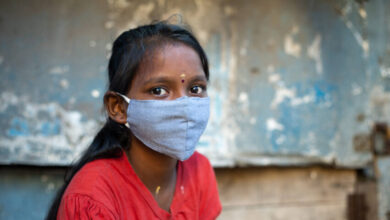
UNICEF: 10 Million Children Threatened By Insecurity In Central Sahel Region
The United Nations Children’s Fund (UNICEF) on Friday said that at least ten million children living in Central Sahel’s Burkina…
Read More » -
Niger
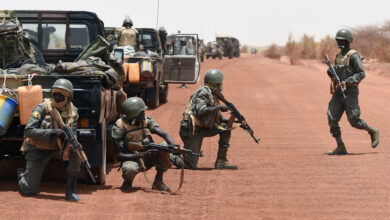
Niger’s President Says Mali’s Withdrawal From G5 Sahel Marks End Of Alliance
Niger’s President Mohamed Bazoum on Wednesday said Mali’s withdrawal from the G5 Sahel, a multinational force created to fight Islamist…
Read More » -
Niger
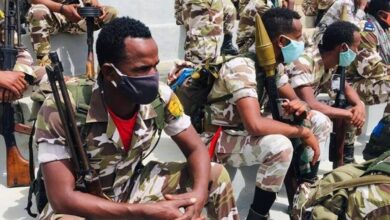
Niger’s Parliament Approves Bill To Deploy More Foreign Forces In The Country
Niger’s Parliament on Friday voted in favor of a bill that allows the deployment of more European forces in the…
Read More » -
Niger
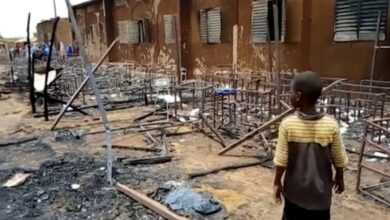
Niger: At Least 26 School Children Killed, Several Others Injured In Classroom Fire
At least 26 schoolchildren lost their lives in southern Niger on Monday after their classrooms made up of straw and…
Read More » -
Burkina Faso
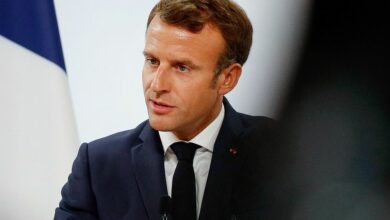
France To Begin Withdrawal Of Military Troops From Africa’s Sahel Region
France will begin withdrawal of its military troops from the Sahel region of West Africa before the end of the…
Read More » -
Niger
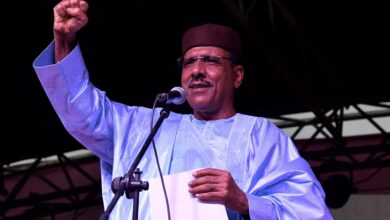
Niger’s New President Mohamed Bazoum Swears-In, Vows To Tackle Terrorism
Niger’s newly-elected President Mohamed Bazoum was sworn into power on Friday in the capital, Niamey, reported Africa News. The swearing-in…
Read More » -
Niger
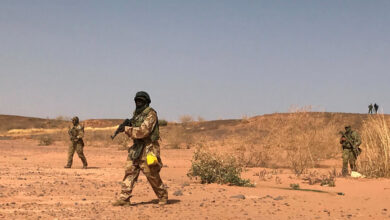
Niger: At Least 137 People Killed In Fresh Attack In Three Villages Near Mali Border
The Niger government on Monday said at least 137 people have been killed in attacks by unidentified attackers on several…
Read More » -
Niger
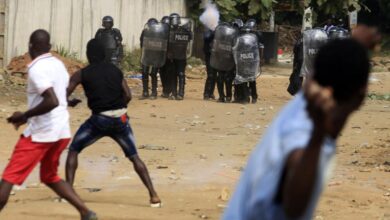
Niger: At Least 2 People Killed, Over 450 Arrested In Post-Election Violence Across Country
Niger’s Minister of Interior and Security Alkache Alhada on Thursday said at least two people were killed and over 450…
Read More » -
Niger
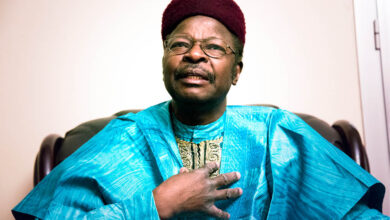
Niger: Opposition Leader Ousmane Denounces Election Fraud, Declares Victory
Niger opposition leader Mahamane Ousmane on Wednesday rejected the runoff presidential election results and claimed that he narrowly won the…
Read More » -
Niger
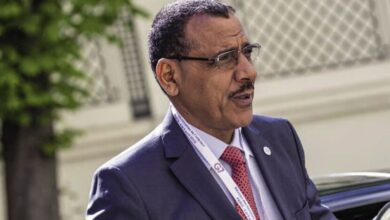
Niger: Electoral Commission Announces Mohamed Bazoum As New President
Niger’s electoral commission on Tuesday declared the governing party candidate, Mohamed Bazoum, as the winner of the presidential election runoff…
Read More » -
Niger
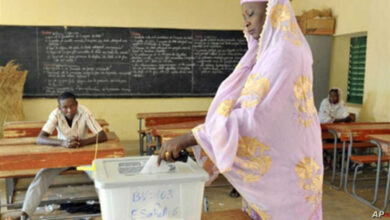
Niger: Seven Election Commission Workers Killed In Landmine Blast On Voting Day
Seven election workers were killed in Niger when their vehicle hit a mine and exploded in the rural commune of…
Read More » -
Niger

Niger: Constitutional Court Confirms Second Round of Presidential Election Next Month
Niger’s Constitutional Court on Sunday announced that a second round of the presidential election is to be held on February…
Read More » -
Niger

Niger: Presidential Election Heads To February Runoff As No Candidate Gets Majority
Niger’s electoral commission has confirmed that there will be a second round of voting next month as no candidate could…
Read More » -
Benin
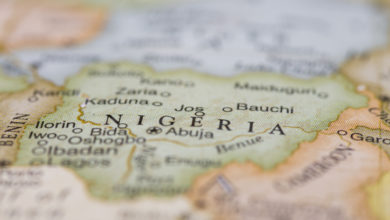
Nigeria, Niger, Benin To Set Up A Patrol Team To Check On Smuggling Activities
Nigeria, Berlin, and Niger on Thursday agreed to set up a monitoring committee to keep a check on smuggling activities…
Read More »

